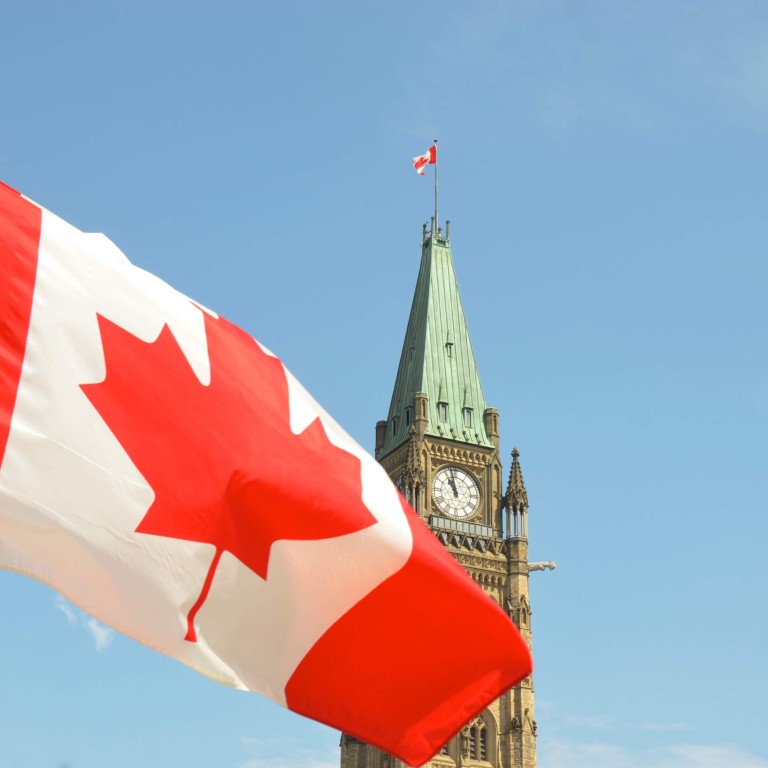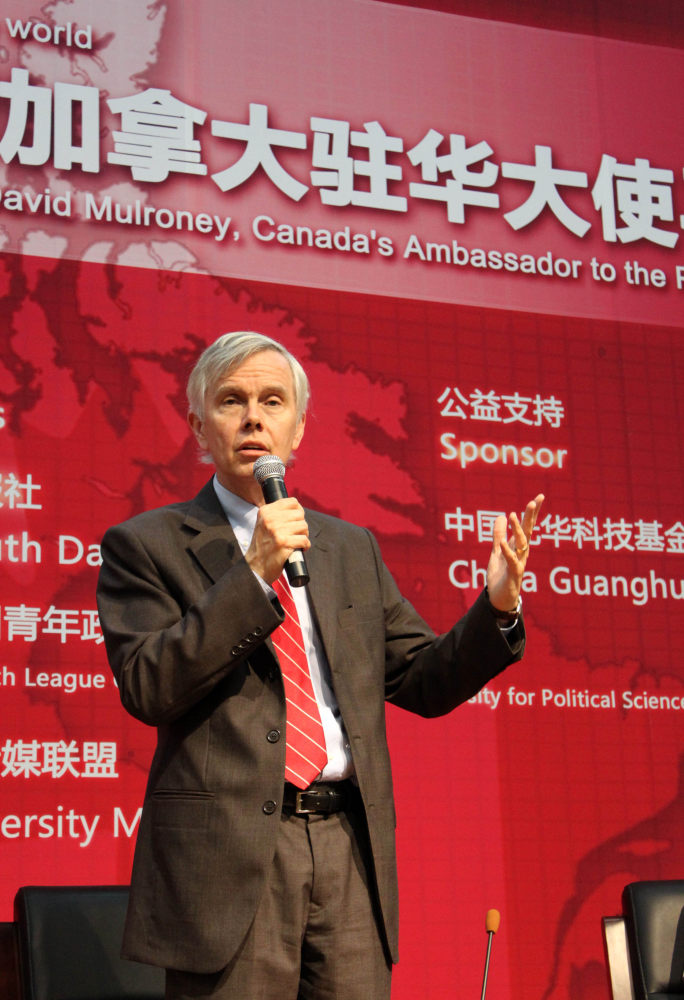
Ex-ambassador blames Beijing ‘kneecapping’ as Canadian parliament’s China committee is shut down
- The Special Committee on Canada-China Relations had been a thorn in Beijing’s side, but the Conservative opposition says it will not seek its revival
- Former diplomat David Mulroney blamed the decision on a Chinese foreign-influence operation, while Canadian Senator Yuen Pau Woo praised the committee’s end
Canadian critics of the Chinese government are decrying the demise of a parliamentary committee that had been a thorn in Beijing’s side since 2019, with a former ambassador calling it a “kneecapping” by China and the result of a foreign-influence operation.
David Mulroney, Canada’s Beijing envoy from 2009 to 2012, directly attributed the decision by the Conservative opposition not to reconvene the Special Committee on Canada-China Relations, to the party’s losses in heavily Chinese electorates in September’s elections.
He said these stemmed in turn from attacks on the party’s tough-on-China platform, that he believed were directed or inspired by Beijing.
“Rather than fight it, the Conservatives are backing down,” Mulroney said on Tuesday. “The irony is that the one place Canadians were likely to hear about Chinese influence operations is shutting down because of a Chinese influence operation.”

Although Canadian attitudes towards China have hardened in recent years, the committee’s efforts have not been universally appreciated; Senator Yuen Pau Woo, an independent from British Columbia, hailed its exit, saying some members’ questioning had been “McCarthyist”.
The committee – established by the Tories with the support of NDP and Bloc Quebecois MPs – had probed Beijing’s actions in Hong Kong, allegations of political interference, the future of Huawei Technologies and the three-year detention of Canadians Michael Kovrig and Michael Spavor in China, among other hot-button subjects.
It put the Canadian Liberal government’s relations with China under a microscope amid tensions that have been running high since the arrest of Huawei Technologies executive Meng Wanzhou in Vancouver in December 2018.
Conservative vote plunged in Canada’s most Chinese electorates
But the non-permanent committee, which required fresh assent by the new parliament in the wake of the election, will not be revived.
Conservative foreign affairs critic Michael Chong told The Globe and Mail newspaper, which first reported the decision on Monday, that this was “to do with resource limitations and not with any change in our stance towards China”.
Chong declined a request by the South China Morning Post for an interview or comment.
But Mulroney – who was appointed ambassador by the former Conservative government of Stephen Harper – was unsparing.

He said on Twitter on Monday that the “kneecapping” of the committee “ranks as one of Beijing’s most successful influence operations anywhere. It guarantees that we’ll see more weaponization of diaspora politics, which effectively mutes, immobilises MPs.”
The Tories had taken a hard line against China in their election platform, prompting Chinese officials and state media to accuse the party of catering to “toxic” anti-China sentiment, with policies that would “invite counterstrikes” if enacted.
China weighs in as Canada’s Conservatives promise to ‘stand up’ to Beijing
In September, the Conservatives suffered severe swings among Ontario and British Columbia electorates that include Canada’s highest numbers of ethnic Chinese voters; three Tory MPs lost their seats as a result.
“The lesson the Conservatives have taken is that the only thing they get for being vigilant – and the one party questioning the Canada-China relationship – is to lose seats,” Mulroney said on Tuesday.
Canada’s eight most Chinese electorates – where ethnic Chinese make up between 39 per cent and 64 per cent of their populations – all saw swings against the Conservatives greatly in excess of national and provincial trends.
For example, Conservative Kenny Chiu in the metro Vancouver riding of Steveston-Richmond East lost his seat on the back of an 8.1 per cent swing against him; Chiu blamed his loss on a “Communist China-endorsed” disinformation campaign in Chinese-language newspapers and radio.
In neighbouring Richmond Centre, long-time Tory MP Alice Wong was ousted while suffering a massive 11.9 per cent swing.
By contrast, the Conservative vote was down 0.7 per cent in all of British Columbia, and just 0.6 per cent across Canada.
“No gain, and a lot of pain,” said Mulroney, who testified to the Canada-China relations committee last year. “Look at Richmond, for example, with the combination of things said by Chinese diplomats, the Chinese government, the Global Times [state-owned tabloid], Chinese-language media in Canada, disinformation on WeChat … it’s hard not to believe it contributed to this result.”
China’s ambassador warns Canada against Huawei 5G ban
Cherie Wong is executive director of the Alliance Canada Hong Kong activist group that has supported the Hong Kong protest movement and been harshly critical of the crackdown on dissent in the city; she has testified twice before the committee.
She lamented the committee’s end as the loss of a “dedicated space” for examining the Canada-China relationship. In particular, she feared that a committee examination of foreign interference in Canada would now never be completed.
“It’s back-pedalling from their discussion in 2019, when [Conservative leader] Erin O’Toole said it was an essential space to examine the most challenging foreign policy files,” she said.
[The] questioning from some members of the committee had a distinctly McCarthyist bent which fed into the anti-Asian sentiment that has spread across the country
Wong said that the committee had kept the government of Prime Minister Justin Trudeau accountable for promises on China. “Now there is no specific space to make sure there are changes in policies and a change in actions,” she said.
However, Senator Woo, who has called for improved relations with China, said it was “just as well that the special committee is not reconstituted”.
“In the last parliament, that committee generated a lot of heat, but very little light,” he said.
“Worse yet, the questioning from some members of the committee had a distinctly McCarthyist bent which fed into the anti-Asian sentiment that has spread across the country.
“Canada needs to rethink relations with China, but the body politic is still too febrile for a balanced conversation.”
China’s embassy in Ottawa did not respond to a request for comment.

